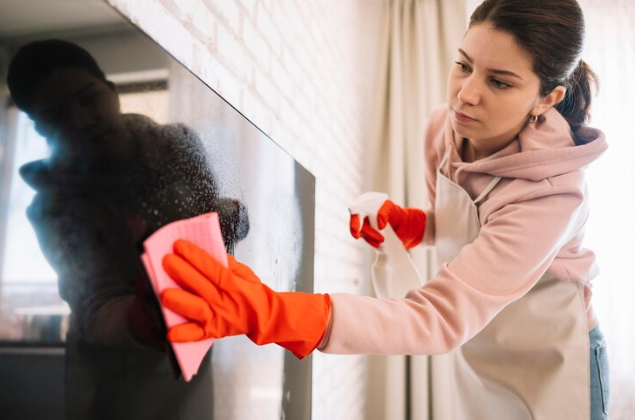It’s frustrating when you open your refrigerator, hoping for cool air, but find lukewarm temperatures instead. Suddenly, your reliable fridge feels like it’s giving up, and you worry about the hassle and expense of fixing it. Whether it’s warm inside, the freezer isn’t freezing, leaks appear, or a broken refrigerator messes with your day and leaves you stressed.
When faced with a malfunctioning refrigerator, it’s natural to want to roll up your sleeves and attempt a DIY fix. After all, who doesn’t love the satisfaction of solving a problem independently? However, before you dive into repairs, it’s essential to assess the situation realistically.
While some minor issues can be resolved with a bit of DIY magic, more complex problems may require the expertise of a professional. So, when should you attempt a DIY repair, and when should you call in the pros? Here’s a simple guide to help you navigate the decision-making process:
3 DIY tips to repair at home
Check the Basics
Before you start dismantling your refrigerator or reaching for your toolbox, take a moment to troubleshoot the most common culprits of refrigerator woes. Ensure that the power cord is securely plugged in and that the circuit breaker hasn’t tripped.
Check the temperature settings to make sure they’re properly adjusted, and inspect the seals around the doors for any signs of wear or damage. Sometimes, a simple adjustment or cleaning is all it takes to get your fridge back in working order.
Clean the Coils
Over time, dust and debris can accumulate on the condenser coils located at the back or bottom of your refrigerator. When these coils become clogged, they can’t dissipate heat efficiently, leading to poor cooling performance.
To remedy this, unplug your fridge, locate the coils, and gently brush away any buildup using a soft brush or vacuum cleaner with a brush attachment. This simple maintenance task can often restore your refrigerator’s cooling power and prolong its lifespan.
Check the Evaporator Fan
If your refrigerator is running but not cooling properly, a faulty evaporator fan could be to blame. This fan circulates cold air throughout the fridge and freezer compartments. To check if the fan is working correctly, listen for its humming sound when you open the fridge door.
If the fan isn’t running or sounds unusual, it may need to be cleaned or replaced. Consult your refrigerator’s manual for guidance on accessing and servicing the evaporator fan.
When it’s time to go to professional help
Despite your best efforts, there may come a time when DIY fixes simply won’t cut it, and seeking professional help is necessary. If you’ve tried troubleshooting basic issues and cleaning essential components to no avail, it’s time to call in the experts.
Signs that you need professional refrigerator repair services include:
- Persistent warm temperatures despite adjusting settings
- Frequent or excessive frost buildup in the freezer
- Unusual noises or vibrations coming from the refrigerator
- Leaks or puddles forming around the appliance
When seeking professional repair services for your refrigerator, choosing a reputable company that offers quality parts and reliable service is essential. One such provider is Hussmann, known for their high-quality Hussmann case parts and commitment to customer satisfaction.
Hussmann has you covered if you need a replacement compressor, fan motor, or door seal. Plus, with their quick delivery service, you can get your refrigerator back up and running quickly.

